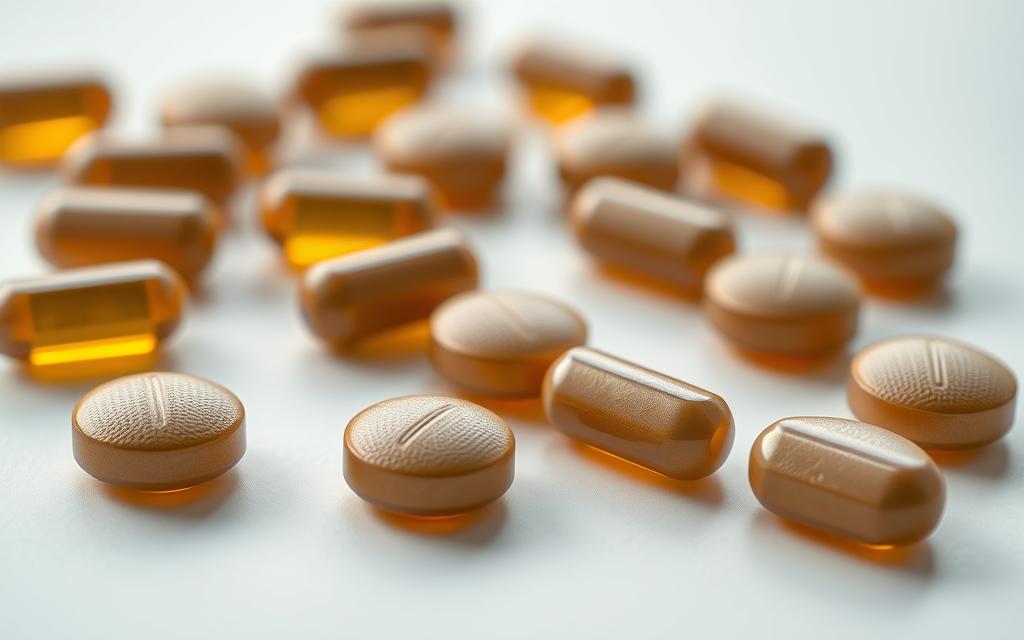Can Exposure to Agent Orange Cause Erectile Dysfunction? Risks and Insights
Veterans who served in Vietnam during the war were exposed to Agent Orange, a herbicide that had severe and long-lasting health consequences. One of the potential health issues linked to this exposure is erectile dysfunction. The connection between Agent Orange and various health problems has been well-documented, but the specific relationship between Agent Orange exposure and erectile dysfunction requires closer examination.
The health implications of Agent Orange exposure are a significant concern for veterans. Research has shown that exposure to this toxic herbicide can lead to a range of health issues, including those related to veterans’ health. Understanding the risks and insights related to Agent Orange exposure and erectile dysfunction is crucial for providing support and care to those affected.
Understanding Agent Orange: Historical Context and Composition
Understanding the historical context and composition of Agent Orange is crucial in grasping its far-reaching consequences on human health. Agent Orange was a herbicide used by the U.S. military during the Vietnam War to destroy crops and foliage that provided cover for enemy forces.
What is Agent Orange and Its Military Use
Agent Orange was a tactical herbicide used to clear vegetation, deny enemy cover, and destroy crops that might be used by the enemy. It was sprayed from aircraft, trucks, and backpack sprayers. The military use of Agent Orange was widespread, with millions of gallons being sprayed over Vietnam, Laos, and Cambodia between 1961 and 1971.
Vietnam War Application and Exposure Statistics
During the Vietnam War, approximately 11 million gallons of Agent Orange were sprayed, exposing hundreds of thousands of soldiers and civilians to its toxic effects. Exposure statistics indicate that many veterans were directly or indirectly exposed, leading to long-term health consequences.
Chemical Composition and Toxic Properties
Agent Orange contained a mixture of two herbicides, 2,4-D and 2,4,5-T, and was contaminated with TCDD (2,3,7,8-tetrachlorodibenzo-p-dioxin), a highly toxic dioxin. The chemical composition of Agent Orange was responsible for its toxic properties, which have been linked to various health problems.
TCDD is known to be highly toxic and persistent in the environment. Exposure to TCDD has been associated with a range of health issues, including cancer, cardiovascular disease, and reproductive problems. The long-term health effects of TCDD exposure continue to be a concern for those who were exposed to Agent Orange.
- Key Health Risks:
- Cancer
- Cardiovascular disease
- Reproductive issues
The Link Between Agent Orange and Veterans’ Health Issues
Veterans who were exposed to Agent Orange during their service may be at risk for various health complications. The U.S. Department of Veterans Affairs (VA) has recognized several health conditions associated with Agent Orange exposure.
Recognized Health Conditions Associated with Agent Orange
The VA has identified numerous health conditions linked to Agent Orange exposure. These conditions include various types of cancer, as well as other diseases.
Diabetes, Neuropathy, and Vascular Damage
Some of the specific health issues associated with Agent Orange exposure are diabetes, neuropathy, and vascular damage. These conditions can significantly impact a veteran’s quality of life.
VA Presumptive Service Connection for Agent Orange Exposure
Veterans exposed to Agent Orange may be eligible for a presumptive service connection, which simplifies the process of filing a claim for VA benefits. To qualify, veterans must meet specific service requirements and have a diagnosed condition recognized by the VA.
Qualifying Conditions and Evidence Requirements
The VA requires evidence of service in Vietnam or other areas where Agent Orange was used, along with a diagnosis of a qualifying condition. Veterans should gather all relevant medical records and service documents to support their claim.
Agent Orange and Erectile Dysfunction: Examining the Connection
Understanding the relationship between Agent Orange exposure and erectile dysfunction is crucial for providing appropriate care and support to affected veterans. The health implications of Agent Orange exposure have been a subject of extensive research, and recent studies have begun to explore its potential link to sexual health issues, including erectile dysfunction.
Scientific Evidence and Research Findings
Several studies have investigated the connection between dioxin exposure, a key component of Agent Orange, and sexual health. Research has shown that exposure to dioxin can lead to various health problems, potentially including erectile dysfunction.
Recent Studies on Dioxin Exposure and Sexual Health
Recent research has focused on the impact of dioxin exposure on sexual health, with some studies suggesting a link between dioxin and erectile dysfunction. For instance, a study published in a reputable medical journal found that veterans exposed to Agent Orange had a higher incidence of erectile dysfunction compared to those not exposed.
Physiological Mechanisms: How Agent Orange May Affect Sexual Function
The physiological mechanisms by which Agent Orange could affect sexual function involve complex pathways, including endocrine disruption and vascular damage. Exposure to dioxin can disrupt hormonal balances and damage blood vessels, both of which are critical for sexual health.
Endocrine Disruption and Vascular Damage Pathways
Endocrine disruption can lead to hormonal imbalances that affect sexual function. Additionally, vascular damage can impair blood flow, a crucial factor in erectile function. These pathways suggest that exposure to Agent Orange could potentially contribute to the development of erectile dysfunction.
Key factors to consider:
- Dioxin exposure as a potential risk factor for erectile dysfunction
- The role of endocrine disruption in affecting sexual health
- Vascular damage as a pathway to erectile dysfunction
Benfotiamine and Erectile Dysfunction: Potential Benefits and Research
Benfotiamine, a derivative of vitamin B1, has been gaining attention for its potential benefits in treating erectile dysfunction. This compound has been studied for its effects on vascular health, which is closely linked to erectile function.
What is Benfotiamine and How It Works in the Body
Benfotiamine is a fat-soluble form of thiamine (vitamin B1) that has higher bioavailability compared to water-soluble thiamine. This characteristic allows it to be more effective in certain bodily functions.
Vitamin B1 Derivative and Its Bioavailability
As a vitamin B1 derivative, benfotiamine plays a crucial role in glucose metabolism and nerve function. Its high bioavailability means it can be more easily absorbed and utilized by the body, potentially leading to improved vascular health.
Clinical Research on Benfotiamine for Vascular Health
Research has shown that benfotiamine can have positive effects on vascular health by reducing oxidative stress and inflammation. These effects are particularly relevant to erectile dysfunction, as vascular health is a key factor in maintaining normal erectile function.
Potential Mechanisms for Improving Erectile Function
The potential mechanisms by which benfotiamine could improve erectile function include:
- Enhancing nitric oxide production, crucial for vasodilation
- Reducing advanced glycosylation end-products (AGEs) that can damage blood vessels
- Improving overall vascular health through antioxidant effects
By addressing these underlying factors, benfotiamine may offer a promising avenue for treating erectile dysfunction, particularly in cases related to vascular health issues.

Treatment Options for Veterans with Agent Orange-Related ED
Agent Orange exposure has been linked to various health problems, including erectile dysfunction in veterans. Understanding the available treatment options is crucial for managing this condition effectively.
Conventional Medical Treatments and Medications
Conventional medical treatments for erectile dysfunction often involve medications that help improve blood flow. PDE5 inhibitors, such as sildenafil and tadalafil, are commonly prescribed to treat erectile dysfunction.
PDE5 Inhibitors and Other Pharmaceutical Approaches
PDE5 inhibitors work by relaxing the muscles in the blood vessel walls, increasing blood flow to the penis. Other pharmaceutical approaches may include testosterone replacement therapy for veterans with low testosterone levels.
Alternative and Complementary Approaches
In addition to conventional treatments, some veterans may find alternative and complementary approaches helpful. These can include lifestyle modifications and nutritional supplements.
Nutritional Supplements and Lifestyle Modifications
Nutritional supplements like L-arginine and ginseng may help improve erectile function. Lifestyle modifications, such as regular exercise, a balanced diet, and stress reduction, can also contribute to overall vascular health and potentially improve erectile dysfunction symptoms.
Navigating VA Benefits for Agent Orange-Related Erectile Dysfunction
Navigating the VA benefits system for Agent Orange-related health issues, including erectile dysfunction, involves several key steps that veterans should be aware of. The process begins with understanding the necessity of establishing a service connection between Agent Orange exposure and the condition.
Filing a Claim for Service Connection
Filing a claim for service connection is a critical step for veterans seeking VA benefits for erectile dysfunction related to Agent Orange exposure. This process involves submitting a claim to the VA, detailing the veteran’s exposure history and the impact of erectile dysfunction on their daily life.
Documentation and Medical Evidence Requirements
To support a claim, veterans must provide thorough documentation and medical evidence. This includes medical records that diagnose erectile dysfunction, evidence of Agent Orange exposure during service, and any relevant medical opinions linking the condition to the exposure.
Available Resources and Support Systems
Veterans navigating the VA benefits system for Agent Orange-related erectile dysfunction can access various resources and support systems. These include veteran support groups and advocacy organizations that provide guidance and assistance throughout the claims process.
Veteran Support Groups and Advocacy Organizations
Organizations dedicated to supporting veterans offer a range of services, from helping with the claims process to providing emotional support. Engaging with these groups can significantly ease the burden on veterans and their families.

Conclusion: Moving Forward with Knowledge and Support
Veterans exposed to Agent Orange may experience a range of health issues, including erectile dysfunction. Understanding the link between Agent Orange exposure and erectile dysfunction is crucial for seeking appropriate treatment and support.
The Department of Veterans Affairs provides various resources for veterans, including presumptive service connection for certain health conditions associated with Agent Orange exposure. Veterans can file a claim for service connection to receive benefits and access treatment options.
Available treatments for erectile dysfunction include conventional medical treatments and alternative approaches. Benfotiamine, a supplement, has shown potential benefits for vascular health, which may help alleviate erectile dysfunction symptoms.
Veterans support is available through various organizations and resources. By seeking help and understanding their options, veterans can better navigate the challenges associated with Agent Orange exposure and erectile dysfunction.
